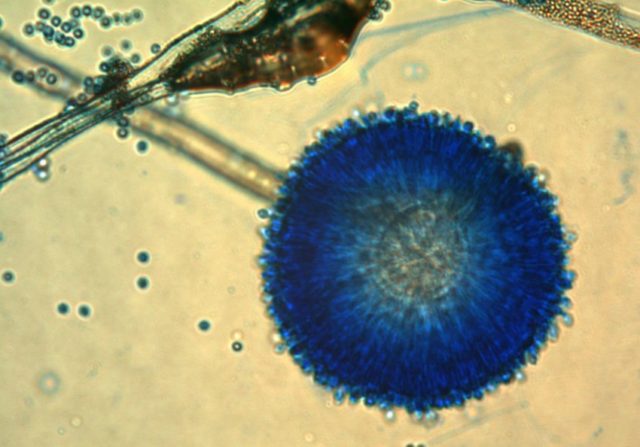But people who have a weakened immune system from.
Aspergillus mold in attic.
However having visible mold growth in your attic is a sign of unhealthy moisture accumulation.
However for those people who are allergic to the mold aspergillus a condition known as allergic aspergillosis it can cause an immune.
Penicillium mold is very common but a little different from other mold types.
Aspergillosis is an infection caused by aspergillus a common mold a type of fungus that lives indoors and outdoors most people breathe in aspergillus spores every day without getting sick.
Mold can also grow indoors on household dust food items such as ground spices and building materials.
However people with weakened immune systems or lung diseases are at a higher risk of developing health problems due to aspergillus the types of health problems caused by aspergillus include allergic.
Penicillium mold is like other types of mold it can cause structural damage and health concerns if its rapidly growth.
Outdoors it s found in decaying leaves and compost and on plants trees and grain crops.
Still aspergillus can be lethal to people with seriously compromised immune systems or where the exposure is so great as to overwhelm an individual s immune system.
Everyday exposure to aspergillus is rarely a problem for people with healthy immune systems.
Attic mold removal cost.
In addition if you notice an increase in allergy symptoms every time you visit your attic you may have an unhealthy level of mold that isn t.
Aspergillus fumigatus is the type of mold that is most likely to cause aspergillosis in certain people when they inhale breathe in its spores.
Aspergillus is a common mold usually greenish when you can see the growth.
Attic mold treatment costs 1 500 to 3 500 on average and can go as high as 6 000 to 10 000 if the leak is large or has gone undetected for a long time.
It can grow even in areas with relatively low humidity.
Aspergillus is not the toxic black mold stachybotrys talked about in many media pieces.
A common example of incomplete work in which we find problem levels of penicillium or aspergillus after a mold remediation is when mold infected fiberglass insulation has not been removed because it looked clean to the naked eye of the mold cleanup crew.
Aspergillus mold is a very common type of mold that grows both indoors and outdoors and is found virtually all over the world.
A simple vacuum sample of that material can indicate whether or not the insulation needs.
When mold spores are inhaled immune system cells surround and destroy them.
In order for mold to grow there must be some sort of moisture or water intrusion in some way shape or form.
Mold is often found outdoors on plants soil or rotting vegetable matter.
Most people who breathe in this type of mold have no reaction to it at all.
Aspergillus mold is unavoidable.
As you may imagine the number one culprit of mold growth within an attic is a roof leak of some sorts that should go without saying.

